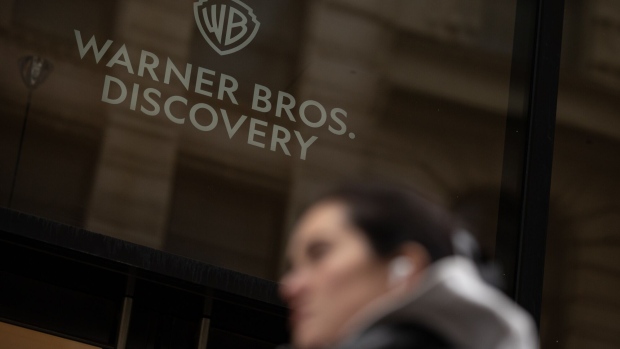May 8, 2024
Warner Bros. Discovery Plans Fresh Cost Cuts, Hike in Max Price
, Bloomberg News

(Bloomberg) -- Warner Bros. Discovery Inc. Chief Executive Officer David Zaslav has ordered his lieutenants to find additional opportunities for cost-cutting in order to hit financial targets for the next couple years, people with knowledge of the matter said.
They include the possibility of more layoffs at the company, which has eliminated more than 2,000 positions over the past year, said the people, who asked not to be identified because the plans are still being worked out. The streaming operation alone could bear hundreds of millions of dollars in budget cuts, mostly in marketing and technology, the people said.
The company, the parent of CNN, HBO and the Warner Bros. studios, has also decided to raise subscription prices as it seeks to reach $1 billion in earnings from the Max and Discovery+ streaming services next year, the people said. The Max streaming service costs $15.99 a month for its lowest-priced ad-free plan.
The shares rose 3.2% in premarket trading on Thursday before New York markets opened. The stock, down about 31% this year, had closed at $7.80.
Warner Bros. declined to comment on any specific plans for cost cutting or price increases, but said in a statement:
“The company is focused on the long-term growth of the business overall, including Max, which has been a priority across WBD to expand the original content offerings for our streaming audiences including news originals from CNN, NCAA Men’s March Madness and NBA playoffs from sports, local language content from international, and a new distribution deal with A24.”
The business was formed in 2022 by the merger of AT&T Inc.’s WarnerMedia and Discovery Inc., the cable-TV programmer led by Zaslav. The deal created a company with more than $50 billion in debt at a time when cable TV, its largest business, was hemorrhaging viewers and advertising dollars.
Under the weight of that debt, Zaslav was among the first in Hollywood to undertake staff and production cuts, including the decision to fold CNN+, an online news service, and shelve movies like the nearly completed $90 million Batgirl.
While those cuts have enabled Zaslav to reduce debt by more than $13 billion over the past two years, they have aggravated filmmakers and business partners in Hollywood. They have also failed — so far at least — to impress investors, who have sent the Warner Bros. shares to all-time lows.
The accelerating decline of cable TV has forced major Hollywood companies, including Warner Bros., Paramount Global and Walt Disney Co. to slash costs after years of investment in streaming services. Those services have attracted millions of subscribers but also cost billions of dollars to build out and program.
Warner Bros. plans to consolidate some of the marketing and technology teams working on its streaming services, according to the people. The company unveiled the Max streaming service last year, combining the best of HBO Max with the more niche Discovery+. It also still operates HBO Go in Asia and is working with Disney and Fox Corp. on a sports streaming service.
Almost every major streaming service is raising prices to improve its financial performance. Peacock, Disney+ and Netflix Inc. have all increased prices in recent months.
Zaslav will soon have to decide whether to outbid Comcast Corp. to keep TV rights to the NBA, a huge source of viewers for the company’s TNT network. The cost of NBA rights is expected to double in this next package to about $2.5 billion annually.
Warner Bros. is scheduled to report first-quarter financial results Thursday before US markets open. Analysts predict sales will decline by about 4%, a reflection of shrinking cable TV advertising and subscriber revenue.
(Adds premarket share move in fourth paragraph. Warner Bros. corrected its comment on NBA coverage in an earlier version of this story.)
©2024 Bloomberg L.P.





